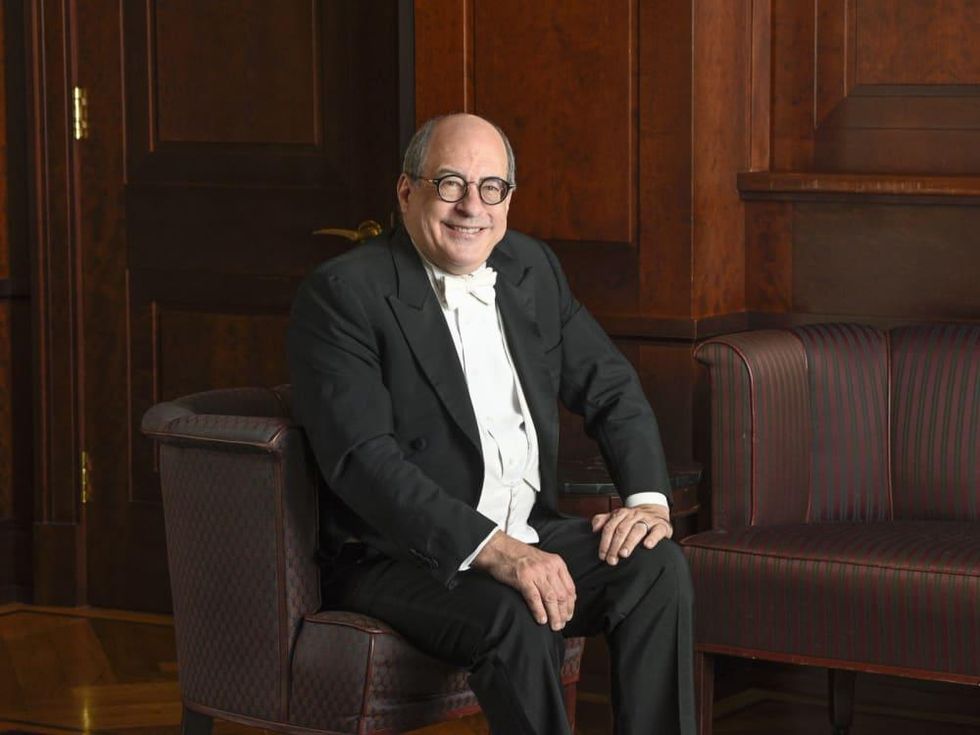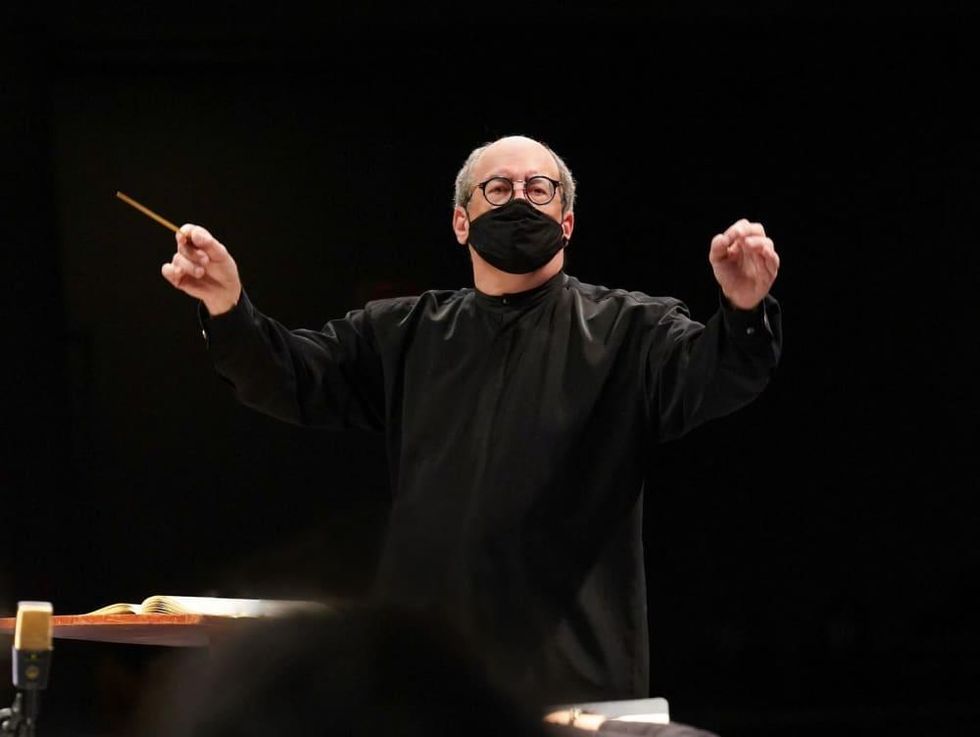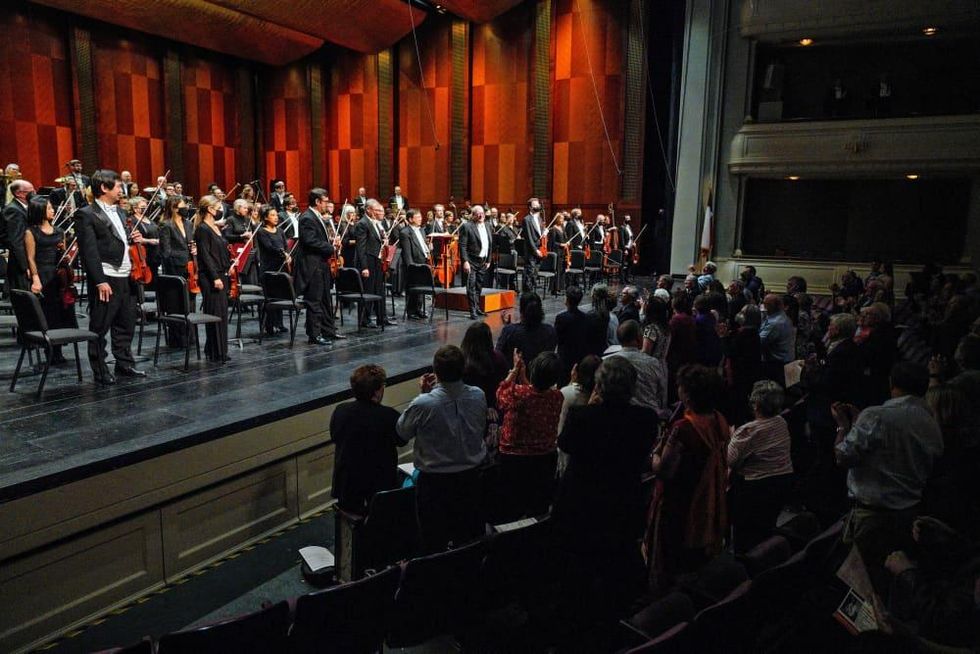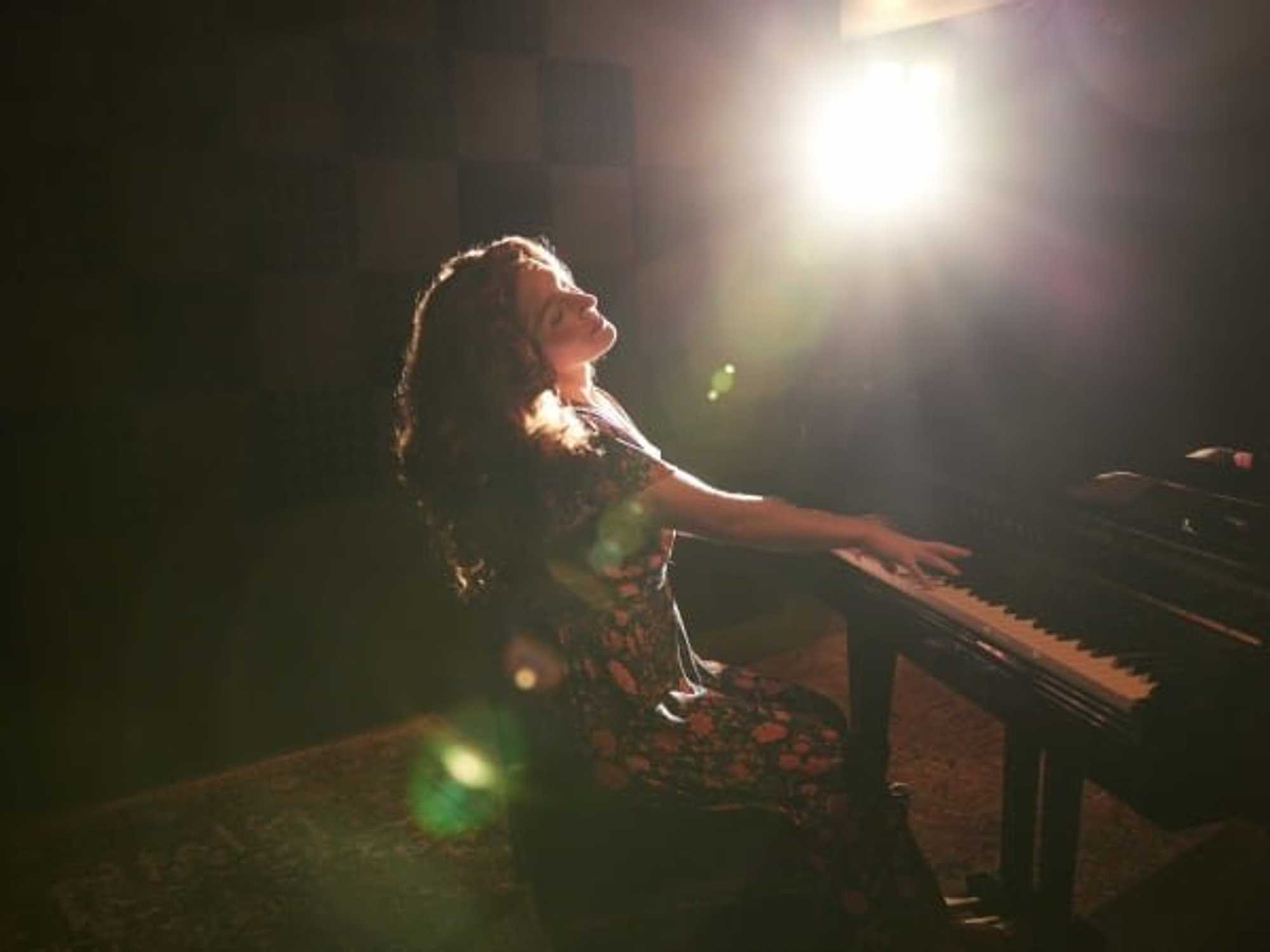Orchestral debut
Renowned maestro Robert Spano picks up baton as new Fort Worth Symphony music director

Robert Spano is cruising through the Colorado mountains, his 10-year-old pug Maurice asleep in the backseat.
It’s the last full week of August, and — in music parlance — Spano is between movements. He’s just wrapped up another summer as music director of the Aspen Music Festival, and he's now en route to Fort Worth, to begin his tenure as the 10th music director of the Fort Worth Symphony Orchestra. First he'll swing through Atlanta, where he'll pack some last things from his 20 years as maestro of the Atlanta Symphony Orchestra.
With Spano, the FWSO begins a new era — a new music director with new vision that includes new musicians, new-to-Fort Worth composers and guest artists, and even the launch of a new series.
In a 30-minute phone chat just past Vail, Colorado, Spano (safely from the passenger's seat) literally shouted with joy from the mountaintops about getting started in Fort Worth. Ahead of the FWSO Opening Night performance on Friday, September 9, here is Spano, in his own words, on his move to Fort Worth and aspirations with the orchestra.
CultureMap: How is your move from Atlanta to Fort Worth going?
Robert Spano: I have a condo that I'm moving in to right after we do the first concerts, and I've never been in it. I bought it with the Realtor, on the phone, showing me everything in the condominium, and it looks great. I hope I like it as much as I did on my phone. (He laughs.)
I tried to get a different condo in that building — the Texas & Pacific Lofts in the old train station — but I didn't move fast enough. So I knew that I didn't have time to come see it in person or I’d lose this one, too. The movers are coming to Atlanta and bringing everything to Fort Worth after we open the season. (And yes, he says, Maurice — pronounced "Morris" — is moving, too.)
CM: You retired from the Atlanta Symphony Orchestra after a glorious two-decades-long tenure. Now, at age 61, why are you choosing to “start all over” in Fort Worth when you could be enjoying retirement?
RS: So, in truth, I wasn't looking for another post. I was looking forward to not having that responsibility indefinitely, just some years of freelancing without being in charge. And I was coming to Fort Worth anyway while they were looking for Miguel Harth-Bedoya’s replacement, as principal guest conductor, as kind of a stabilizing element in a period of transition. But then, when I started working with the orchestra, I was having such a wonderful time.
(FWSO board chair) Mercedes Bass, who is so devoted to the orchestra, is an old friend of mine from our years in Aspen. Finally at dinner one night in Fort Worth, she said, “Well, why don't you just do this? We could have such a wonderful time. Why do I have to look for somebody else?”
CM: Did that surprise you?
RS: I was taken aback by surprise, and I was very excited, because I was having such a wonderful time with the orchestra itself. Mercedes' passion for the orchestra is so real and infectious. And (FWSO CEO) Keith Cerny is relatively new to the orchestra as the executive. And he, too, is a kind of power house and a real visionary leader for the orchestra.
So seeing that the administration and the board and the players themselves are all so deeply invested in what the next chapter of the orchestra is, I really got caught up in the enthusiasm. And it's exciting to come into an institution at a time when so many things are right. Miguel did such a wonderful job for two decades, and it just makes the orchestra all the more ready for more.
CM: You have a three-year contract with FWSO, and it seems someone of your career stature could live anywhere and fly in and out. Why did you choose to put down new roots in Fort Worth?
RS: Oh, I think it's so important to live where your orchestra is. I know, from my decades in Atlanta, how important it was to me that I lived there for as long as I was with the orchestra. My predecessor Miguel Harth-Bedoya has been in Fort Worth about as long as I've been in Atlanta. And he always made Fort Worth home, I think, for the same reason. It's just so important to be rooted.
CM: Miguel also became very involved in the community, teaching in the schools and universities, just as you did in Atlanta. Do you plan to continue that in Fort Worth?
RS: Oh, absolutely. That's the reason to move. Miguel and I have known each other a long time, and we share the same attitude about that, so I'm hoping I can follow in his footsteps and continue that engagement.
CM: You’ve guest-conducted the orchestra, but how do you start building a whole new relationship with them as THE music director?
RS: I’ve now met with every member of the orchestra in groups of about eight people at a time. Over the course of the year, I had a chance to hear from every member of the orchestra about what's on their minds — what's important to them, what they're concerned about, what they're happy about, what they're not happy about, what they would like to see happen. So that initial kind of meeting and sharing of thoughts is so valuable.
Also this year we're starting up a chamber series at the Kimbell, and I don't want to be a hog forever on these programs (he laughs, noting that he's playing piano on all three of the concerts) … but I’m looking forward to playing chamber music with members of the orchestra, so we can really get to know each other.
And then also I got to know many of the players, in terms of what they're thinking and what they're listening for, because we have had a lot of auditions. We’ve hired about 10 new members of the orchestra — isn’t that amazing? And that's a process that's done with representation from the orchestra.
CM: Are you replacing musicians who've left, or are you expanding the orchestra?
RS: We're actually in the middle of doing both, but we're not expanding that fast. The 10 we just hired were kind of circumstantial regarding who had retired or left — some really important positions.
This year and next year and the next, we're adding one player a year to the permanent roster of the orchestra — so it's a three-year plan that we’ll revisit and potentially continue to do. For instance, we just hired an English horn position, and there wasn't an English horn position before in the orchestra. So, that's been wonderful excitement.
We're also adding a week to the subscription season each year. Those are two, sort of, incremental growth plans that we’re enacting.
CM: What kind of input did you have planning this upcoming season?
RS: I was on board long enough ago that none of it was planned without me. That was fun because right away, Keith and I were planning not just this season but the next couple of seasons, as well. They're not completely planned, but we know there are certain projects that we're wanting to pursue over those multiple seasons. And we're looking ahead to certain things that we want to plan far enough in advance, to make sure we can do the way we'd like — that's been exciting, too.
CM: This season spans from a night of Wagner to a collaboration with Texas Ballet Theater. How did you put it together, and did you feel any pressure since it was your debut?
RS: I guess I did. I didn't think of it, but now that you mention it, yeah, I was planning my first season there. (He laughs.) But I always feel the pressure planning a season anywhere because you're trying to satisfy so many agendas, and it's wonderful. I love it, but it's hard. And then you have to keep re-evaluating whatever it is you decided to do and see if you feel that it's balancing out based on all the different things that matter.
(It’s very much like being) a museum and a gallery, where we have our standing exhibits of the great masterpieces of classical music, and then we have our gallery that changes, and we’re exploring things that are less well-known or are new. And that is an important part of the balance.
CM: You don't just have one audience, but multiple audiences to satisfy, right?
RS: Different people are hungry for different things, seeking different experiences. (We have to consider) are we attending to the interests that have been expressed? Are we taking care of the orchestra, making sure they're challenged and engaged and playing at the top of their game? Are we doing enough things that we know will be financially successful and sell tickets? And then sometimes there are things that are really important to do that aren't going to be bestsellers, but they're still worth doing for the mission of the institution.
CM: On opening weekend, you’re doing Brahms, Schubert, and Beethoven’s "Emperor" Concerto. How did you put that opening weekend concert together?
RS: We had, I guess, about 15 versions of that opening weekend at different times. What we knew was that we wanted something that would feel like a great launch to the season. And then eventually, we latched onto this idea of really focusing on the classics and doing some of the most-loved music in the world and making that the “party” to start the year with.
I also wanted to introduce this pianist, who is making his Fort Worth Symphony debut. Jorge Federico Osorio is just a magnificent pianist, who I had not known until maybe 10 years ago. He's had a long career and he’s one of the most elegant and beautiful pianists of the classic repertoire. So when we were able to get him for that week, the "Emperor" was sort of the kingpin, and then we added the Brahms and the Schubert.
CM: In keeping with your passion for championing living composers, you have a couple of world premieres programmed this season — tell me about those.
RS: There's a saxophone concerto in October. And this is a performer (Joe Lovano) who has had a huge career as a jazz player. He's also a great improviser, and we already got together last year and played through the work in progress, so we've already had a taste of what's to come. And it's really quite amazing. The combination of his jazz background and what the orchestra's doing and the ways that the composer (Douglas J. Cuomo) set up improvisational possibilities — it's pretty wonderful.
And then later, a piece by composer Brian Raphael Nabors. He's just amazing. We put him on a program in our imagination. But then I talked to Brian about it and asked him if he was happy about the idea, and I got lucky because he was thrilled about the idea. He's on this program with Texas Ballet Theater, where we're doing The Firebird. All the pieces on that program are stories or tales. I said, "What do you think, Brian?" And he said, "Oh, I've been trying to write some pieces on these African folktales I know." And so he's doing that.
CM: When we get to the end of the season, what will a successful first year have looked like, or felt like, to you?
RS: I guess it would be as simple as knowing that we all had such a wonderful time experiencing this music together, that we can't wait to do the next season.
---
The interview was edited for clarity. Fort Worth Symphony Orchestra opening weekend performances take place September 9-11, at Bass Hall.



